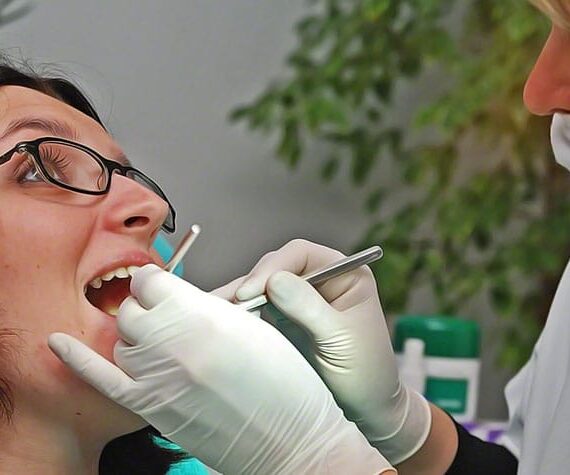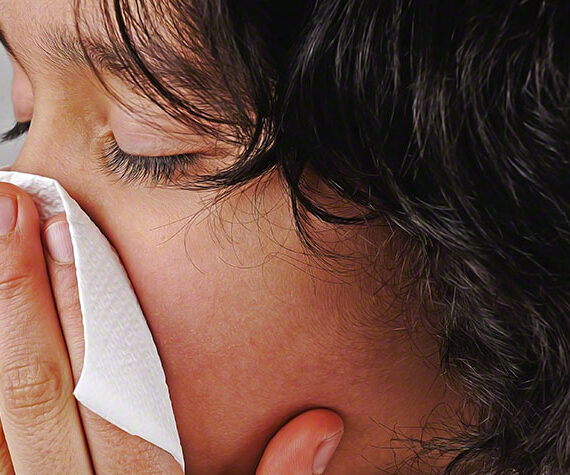Your eyes can also fall victim to allergens and the reactions can be severe enough to visit an allergy clinic. Here is everything you need to know about the different types of eye allergies and their corresponding symptoms and treatments.
Eye Allergy
Eye allergies sound complicated, but the main gist of them is pretty much the same. It’s the severe reaction caused by a trigger or allergen that’s present in the air or your surroundings. Once the allergen comes in contact with your eye, it can lead to irritation, itchiness, redness in the normally white part of your eye, blurry vision, watery eyes, and the list goes on for a mile. Eye allergies can occur any time of the year, but they affect most people with allergies in the summer and winter months.
Speaking of allergens, there can be different things that can lead to horrid reactions in the eye. Some common allergens can include:
- Pet fur and dander
- Sand and dust
- Pollen from grass and flowers
- Hay
- Certain products that don’t sit well
- Certain fragrances that can irritate the eyes
- Contact lenses
Eye allergies can be pretty uncomfortable to deal with because it can affect your vision and, in some cases, it can even hurt to open the eyes and your eyes might be super sensitive to bright lights and other things. So, you must get to the bottom of it and treat this allergy timely, to feel some sort of relief.
Types Of Eye Allergies
Here are some of the most common eye allergy types and their corresponding symptoms.
Allergic Conjunctivitis
It is a common eye allergy where the whites of your eyes can get inflamed. It is the inflammation of the conjunctiva, which is the membrane covering the whites of your eyes. This is what leads to inflammation and redness and which can be very discomforting.
You will experience watery and red eyes, the temptation to itch your eyes will be never-ending and your eyes might also be swollen. Allergic conjunctivitis can be caused by hay, dust, pet fur, and other external agents that can come in contact with your eyes.
Perennial Allergic Conjunctivitis
This is the type of allergy that can occur any time of year. Unlike normal allergic conjunctivitis, its triggers can be found anywhere and everywhere and your eyes might be at risk of an infection or a bad reaction.
The symptoms are pretty much the same as allergic conjunctivitis, but there also might be swelling in the eyes and on top of the eyelid, so it can be pretty hard to open and close your eyes and even blinking will lead to pinches of pain. It’s a mild allergic reaction, as compared to allergic conjunctivitis.
Contact Lens Hypersensitivity
Do you wear contact lenses regularly? If you do, then you might be at risk of this allergic reaction. Contact lens hypersensitivity is an allergic reaction caused when you wear lenses for too long. Either they don’t sit well on your eye or they lead to irritation and watery eyes. It’s triggered by the lens material and the protein found in your tears, which combine and cause a great deal of irritation and redness.
It can also be caused if you don’t clean your lenses regularly and keep reusing old lenses. Your eyes will be red, watery, and swollen, and putting on and taking off lenses will be a nightmare.
Atopic Keratoconjunctivitis
This allergic reaction stems from a genetic issue, called atopy and it causes the body to produce a lot of antibodies, therefore more hardcore symptoms, whenever an allergen comes in contact with the eye.
It’s mostly caused in older people and if you don’t do something about it, then it can lead to loss of sight, in worse cases. Your eyes will be red and itchy, the vision will be blurry and even moving your eyes to see something will be painful and it can be felt to your head. That’s extremely unpleasant, if you think about it. So, you must go to an allergy doctor Manassas if you notice the symptoms.
Symptoms Of Eye Allergies
Now that you know the various types of eye allergies, here are some general symptoms that can pinpoint an allergic reaction to the eye:
- The whites of your eyes will be red and painful.
- Your vision might get affected and you might not be able to see clearly.
- Your eyes will produce a lot of water. This is a defense mechanism for the eye, in hopes of flushing the trigger out of the eye.
- The eye will be swollen and you will have a hard time moving it around.
- The eyelid can also turn red and touching or pressing on it will be painful. That’s because excess fluid has been trapped in it and it will go away once you treat the symptoms.
- Your eyes will produce a lot of sticky and yellow-white discharge. If you don’t clean it, then it can stick to your lashes and cause your eyes to be sealed shut. The discharge also hardens pretty quickly, which is why it is recommended that you keep washing your eyes.
Treatment For Eye Allergies
Here are some treatment options for eye allergies and, thankfully, they’re all topical.
Antihistamine Eye Drops
Using antihistamine eye drops will prove to be a reliever for you. Antihistamines will get rid of the swelling in the eye, as well as the redness of the conjunctiva and you will feel comfortable after a couple of uses.
Cold Water
If you don’t have any eye drops on hand and your eyes are burning, then use cold water to flush and clean your eyes. It’s going to give you a soothing relief and the redness will diminish over time as well. Try to do this at least once after every 25 to 30 minutes, until you can get your hands on the medication.
Allergy Medication
Allergy medication can also help and it’s a long-term solution for allergies. If you feel like this is something persistent, then you can get an appointment with your allergy doctor and discuss the treatment procedure with him/her.
The doctor will diagnose your allergy first and then give you a treatment plan to work with. This is going to give your eyes a lot of relief and you can use the medicine prescribed to you, whenever you feel like your allergies are flaring up.
NSAID Eye Drops
NSAID eye drops can be used in case your eyes are extremely watery and moving them around is borderline painful. These eye drops are like antihistamines, but they have painkillers in them as well, so it’s going to help with the pain.
Immunotherapy
You can consider immunotherapy for eye allergies as well. Luckily, eye allergies are some of the few allergies that can be treated with immunotherapy shots, so it is worth a try. You must discuss this with your doctor and get your first shot as soon as possible. Allergy shots work for most people.
Conclusion
Once you know how to combat these allergies, you better believe that you’ve won half the battle. The other half is finding the right allergy specialist Germantown who can treat your eye allergy effectively.



